If you are planning to meet with a lawyer for the first time, you may be feeling a bit nervous or overwhelmed about what to expect. However, with a little preparation, you can make the most out of your first-ever consultation with a lawyer and ensure you get the answers you need. Here are seven tips from our business lawyer in Abbotsford for preparing for your initial consultation with a lawyer:
1. Research the Lawyer and Their Specialty
Before scheduling your initial consultation, take some time to research the lawyer and their specialty. Look for a lawyer with experience in the law area that your case falls under. For example, if you need a personal injury lawyer, look for someone who has handled similar cases. This will help you find a lawyer who understands the specific issues related to your case and can provide you with the best possible advice.
2. Prepare a List of Questions
When you meet with a lawyer, you will want to make sure that you ask all of the questions that you have. To ensure you don’t forget anything, prepare a list of questions beforehand. This will help you stay organized and focused during the consultation. Write down any concerns or issues and any information or evidence you want to bring to the lawyer’s attention.
3. Gather Relevant Documents and Information
Depending on the nature of your case, you may need to bring certain documents or information to your consultation. For example, if you are consulting with a divorce lawyer, you may need to bring financial documents and proof of income. If you meet with a personal injury lawyer, you may need to present medical records and bills. Ensure you have all the relevant documents and information organized and ready to go.
4. Be Honest and Forthcoming
During your consultation, being honest and forthcoming with your lawyer is important. This will help them understand the full scope of your case and provide you with the best possible advice. Don’t be afraid to share embarrassing or sensitive information with your lawyer. They are bound by confidentiality and will keep your information private.
5. Take Notes
During your consultation, take notes on the lawyer’s advice and recommendations. This will help you remember the essential details later on. You can also ask the lawyer for their contact information so you can follow up with any additional questions or concerns that you may have.
6. Understand the Lawyer’s Fees
Before hiring a lawyer, you must understand their fees and billing practices. Ask the lawyer about their hourly rate, retainer fee, and any other costs associated with your case. Ensure you fully understand the fee structure before signing any contracts or agreements.
7. Trust Your Instincts
Finally, trust your instincts when it comes to hiring a lawyer. If you feel uncomfortable or uneasy during your consultation, it may be a sign that there are better lawyers for you. On the other hand, if you feel confident and comfortable with the lawyer, it may be a good sign that they are the right fit for your case.
Conclusion
Preparing for your initial consultation with a business lawyer in Abbotsford is a big step in the legal process. By doing your research, preparing questions and documents, being honest, taking notes, understanding fees, and trusting your instincts, you can get the best possible advice from your lawyer. Good luck!
Pathfinder Law provides comprehensive legal advice and representation on various matters, ranging from civil disputes to family issues and business transactions. We work to ensure our clients receive the best possible service and representation for their individual needs, regardless of their location in British Columbia. Our business lawyers in Abbotsford are dedicated to assisting our clients in navigating the complexities of the legal system to achieve the best possible outcomes. Set your initial appointment today!


